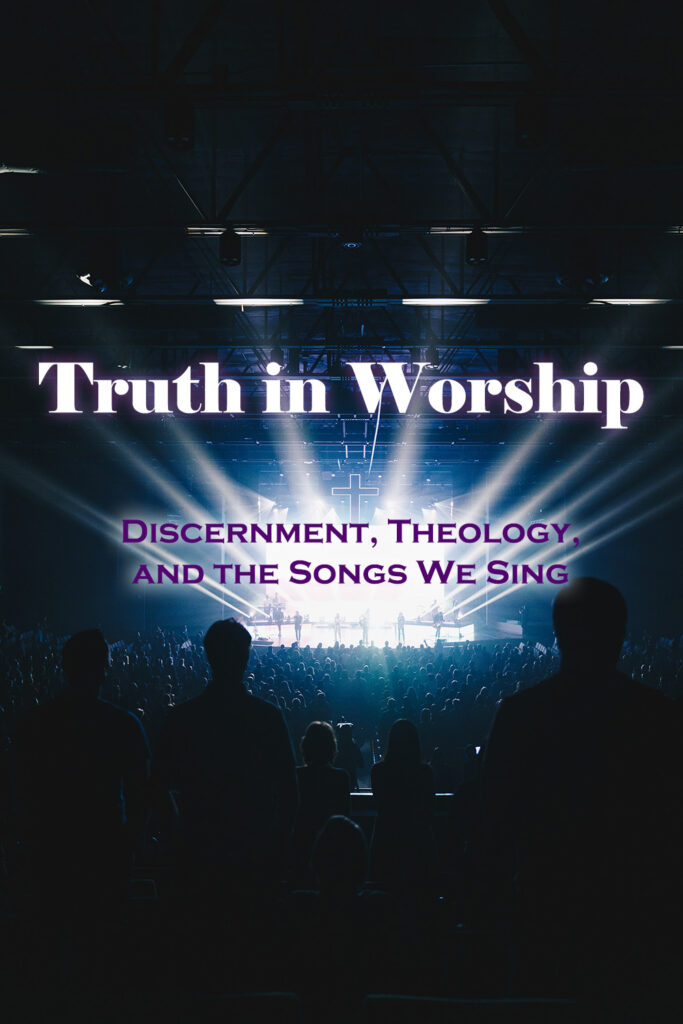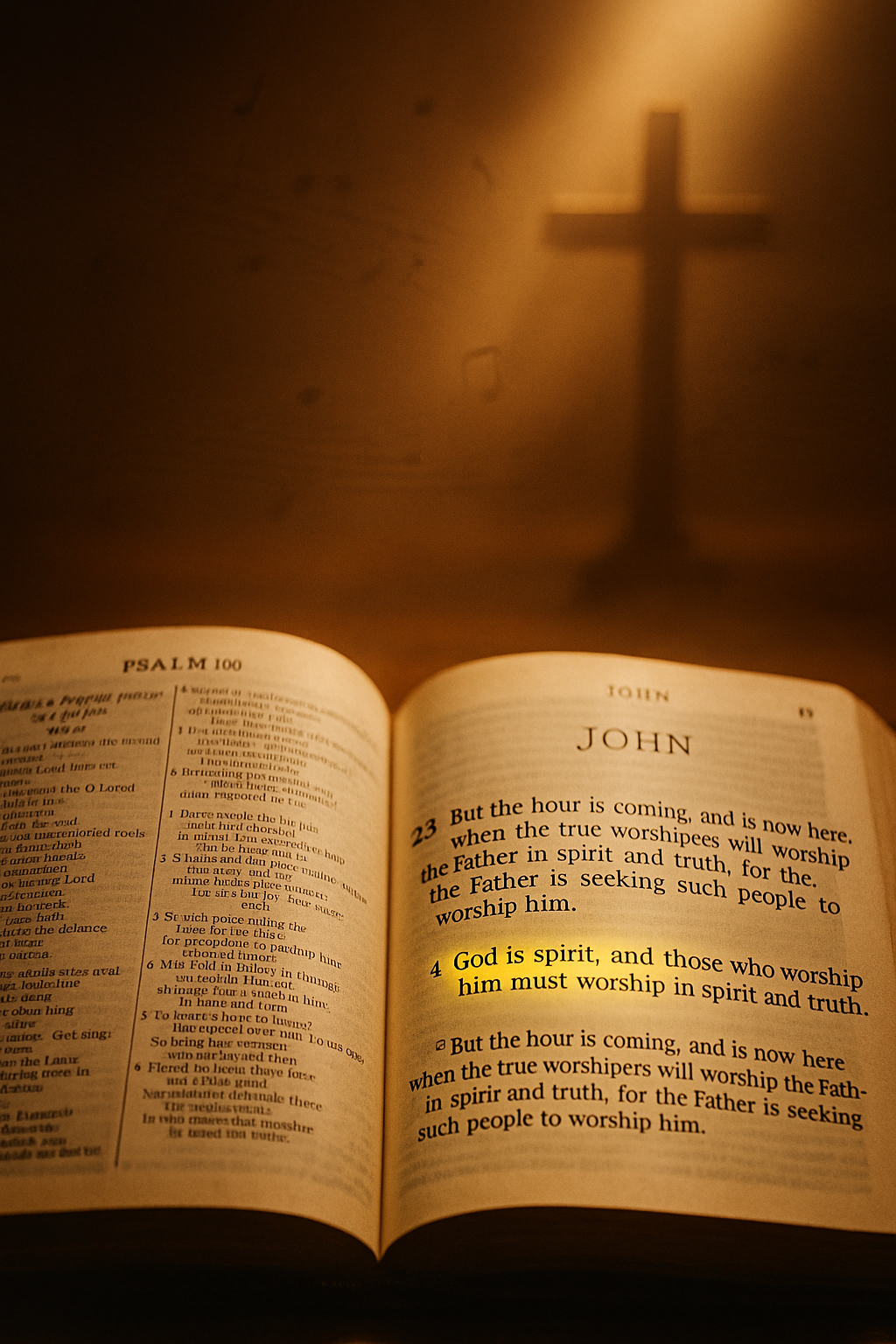⏱️ Estimated Reading Time: 6 min read
In Spirit and in Truth: Why Biblical Worship Matters
By Joshua Mills
Why does biblical worship matter? It matters because worship is about God. Our great and glorious God determines how He ought to be worshipped. Thus, if we are to worship God rightly, we must see what He has to say in His Word. In this short article, I would like to set before you the way we must approach our Triune God in worship. God determines how sinners can approach Him in worship. If we grasp this reality, we will have a biblical foundation for worship to build upon.
Biblical Worship Defined
To begin, how does God want to be worshipped? There are many passages that one could turn to in finding an answer to this question. If we were to narrow down our study to one passage in the New Testament, we could go to the Gospel of John. The apostle John has written a book—the Gospel of John—to display the glory of God in the flesh, with the intent that we would believe upon Him and find eternal life. Listen to John 20:30–31:
“Now Jesus did many other signs in the presence of the disciples, which are not written in this book; but these are written so that you may believe that Jesus is the Christ, the Son of God, and that by believing you may have life in his name.”
The whole structure of John’s Gospel is based on the backbone of setting Jesus Christ before our eyes. John moves from the “idea of Jesus as the true tabernacle (1:14) and the true temple (2:19) to suggest that He fulfills the ideal of the holy mountain where God can be encountered (4:20–24).”[i] In John 4, we see that the Triune God is seeking worshipers who will worship Him “in spirit and truth” (John 4:24). Biblical worship can be simply defined, “as worshiping the Triune God in spirit and truth. God is seeking this kind of worship; therefore, worship according to His Word matters.”[ii]
In the context of John 4, a Samaritan woman comes to Jesus with a question about worship: “Our fathers worshiped on this mountain, but you say that in Jerusalem is the place where people ought to worship” (John 4:20). Sadly, the woman’s main concern is not how we are to worship, but where we are to worship. The Samaritan woman is more concerned about the location of worship than the way to worship, and the essence of worship.
The Lord Jesus said to the Samaritan woman, “Woman, believe me, the hour is coming when neither on this mountain nor in Jerusalem will you worship the Father” (John 4:21). What hour is coming? The hour refers to the death, burial, and resurrection of Jesus Christ (John 16:32). In the words of D. A. Carson, “The person and work of Jesus Christ would inaugurate a new kind of worship which is not limited to location or space.”[iii]
So, what does it mean to worship the Triune God “in spirit and truth”? Bob Kauflin defines biblical worship as the following: “Worshiping God ‘in spirit and truth’ is a spiritual engagement with God by means of Christ. In other words, ‘our meeting place with God’—the ‘place’ we now worship—is the exalted Lord Jesus Christ, who is truth incarnate.”[iv]
Biblical Worship Practiced
Next, what does biblical worship “in spirit and truth” look like in the New Testament Church? We can look at biblical worship in two ways.
First, we approach the Triune God in worship. We worship the Father, through the Son, and by the Spirit. The Trinitarian view of worship is defined as “the gift of participating through the Spirit in the incarnate Son’s communion with the Father. That means participating in union with Christ, in what He has done for us once and for all, in His self-offering to the Father, in His life and death on the cross.” In John 4, we see that “the exalted Christ is now the ‘place’ where God is to be acknowledged and honoured.”[v]
Second, true worship is gospel-focused. Concerning this, D. A. Carson writes:
“New Covenant worship finds its first impulse in this transforming gospel, which restores our relationship with our Redeemer-God and therefore with our fellow image-bearers, our co-worshipers. Worship must manifest itself both in the individual believer and in corporate worship, which is offered up in the context of the body of believers.”[vi]
As we conclude, have you considered the sheer grace that we have received in Jesus Christ? We do not deserve to approach the Father in worship. We deserve His holy, eternal wrath for our sins against Him. And yet, in grace and mercy, the Triune God has made a way for sinners to be reconciled to Himself—through believing, trusting, and resting in the person and work of our Lord Jesus Christ on behalf of sinners. We can only approach the Father through Christ alone.
Five bleeding wounds He bears, received on Calvary;
They pour effectual prayers, they strongly speak for me;
“Forgive him, oh forgive,” they cry,
“Nor let that ransomed sinner die.”The Father hears Him pray, His dear Anointed One;
He cannot turn away the presence of His Son;
His Spirit answers to the blood
And tells me I am born of God.My God is reconciled, His pard’ning voice I hear;
He owns me for His child; I can no longer fear;
With confidence I now draw nigh,
And, “Father, Abba Father,” cry!
—Charles Wesley
[i] David, Peterson. Engaging with God: A Biblical Theology of Worship. (Downers Grove: InterVarsity, 2002), 97.
[ii] James B. Torrance, Worship, Community and the Triune God of Grace. (Downers Grove: InterVarsity, 1996), 43.
[iii] D. A., Carson. The Gospel According to John. PNTC, 223.
[iv] Bob, Kauflin. Worship Matters. Leading Others to Encounter the Greatness of God. (Wheaton: Crossway, 2008), 70.
[v] David, Peterson. Engaging with God: A Biblical Theology of Worship, 100.
[vi] D.A., Carson. ed. Worship by the Book. (Grand Rapids: Zondervan, 2002), 43.




